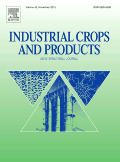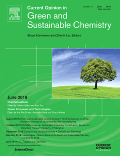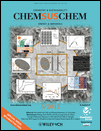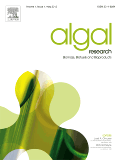
Biofuels Bioproducts & Biorefining-Biofpr
Scope & Guideline
Pioneering Research for a Greener Future
Introduction
Aims and Scopes
- Biomass Conversion Technologies:
Research on various methodologies for converting biomass into biofuels, including thermochemical, biochemical, and physical processes. - Sustainable Biofuel Production:
Emphasis on developing sustainable practices for biofuel production, optimizing feedstocks, and improving yield and efficiency. - Techno-Economic Assessments:
Evaluating the economic viability and environmental impacts of biofuel and bioproduct technologies through comprehensive techno-economic analyses. - Bioproduct Development:
Investigation into the production of high-value bioproducts from biomass, including chemicals, materials, and energy. - Circular Economy and Waste Valorization:
Focus on the integration of circular economy principles in biorefineries, utilizing waste materials for energy and product generation. - Microbial and Enzymatic Processes:
Exploration of microbial and enzymatic approaches for biomass conversion and bioproduct synthesis, highlighting advances in synthetic biology.
Trending and Emerging
- Advanced Biomass Conversion Methods:
Increasing focus on novel conversion technologies, including microwave-assisted and supercritical fluid processes, that enhance efficiency and yield in biomass-to-biofuel transformations. - Integrated Biorefinery Systems:
A trend towards integrated biorefinery systems that combine multiple processes and optimize resource use, aiming for zero waste and maximum product recovery. - Microalgae and Waste Biomass Utilization:
Growing interest in utilizing microalgae and agricultural waste as feedstocks for biofuel production, recognizing their potential for sustainable energy solutions. - Life Cycle Assessment and Sustainability Metrics:
Emphasis on life cycle assessments and sustainability metrics in evaluating the environmental impacts of biofuel production processes, guiding policy and investment decisions. - Carbon Capture and Utilization:
Emerging research on integrating carbon capture technologies with biomass conversion processes to reduce greenhouse gas emissions and enhance sustainability. - Synthetic Biology and Engineered Microorganisms:
Increasing exploration of synthetic biology to engineer microbes for improved biomass degradation, bioproduct synthesis, and enhanced metabolic pathways.
Declining or Waning
- First-Generation Biofuels:
There is a noticeable decline in research focused on first-generation biofuels, such as those derived from food crops, as emphasis shifts towards more sustainable second and third-generation biofuels. - Traditional Feedstocks:
Research on conventional feedstocks like corn and sugarcane is becoming less prominent, with a trend towards exploring more diverse and sustainable feedstocks. - Conventional Biodiesel Production Processes:
Interest in traditional biodiesel production methods, particularly those relying on edible oils, is waning in favor of innovative approaches using waste oils and non-edible feedstocks.
Similar Journals

BioResources
Advancing sustainable solutions through innovative bioresources.BioResources is a pioneering open access journal launched in 2006, dedicated to disseminating knowledge at the intersection of bioengineering, environmental engineering, and waste management. Published by NORTH CAROLINA STATE UNIVERSITY DEPARTMENT OF WOOD & PAPER SCIENCE, this journal serves as a vital platform for researchers and professionals to explore the sustainable use of biomaterials and renewable resources. With an impact reflected through its Scopus rankings, including a respectable position in the 2023 quartile rankings across several relevant categories, BioResources is committed to advancing scientific discourse and enhancing the understanding of bioresource utilization. The journal not only supports high-quality research but also encourages contributions that shape environmental policies and practices. Accessible globally, it invites active participation from scholars aiming to contribute to a more sustainable future. Researchers, professionals, and students alike will find valuable insights and groundbreaking research within its pages as it continues to foster knowledge and innovation in the field.

INDUSTRIAL CROPS AND PRODUCTS
Pioneering Insights for Sustainable Crop DevelopmentINDUSTRIAL CROPS AND PRODUCTS is a premier journal dedicated to the field of agronomy and crop science, published by Elsevier. With an impressive impact factor that places it in the Q1 quartile for its subject category, this journal ranks among the top 29 out of 406 in Agricultural and Biological Sciences, demonstrating its significance and influence within the academic community. Since its inception in 1992, it has been committed to disseminating high-quality research that advances the understanding of industrial crops and their applications. The journal is an excellent resource for researchers, professionals, and students who are keen to explore novel findings, methodologies, and approaches in crop diversification and product development. Although it does not currently offer open access options, it maintains a rigorous peer-review process to ensure that only the most impactful research is published. As it continues to grow and evolve through to 2024, INDUSTRIAL CROPS AND PRODUCTS remains a crucial platform for those looking to make significant contributions to the field.

Current Opinion in Green and Sustainable Chemistry
Pioneering Green Practices for a Better TomorrowCurrent Opinion in Green and Sustainable Chemistry, published by Elsevier, is a premier journal dedicated to exploring the rapidly evolving field of green and sustainable practices in chemistry. With an impressive Q1 ranking in multiple categories, including Catalysis, Process Chemistry and Technology, and Waste Management, this journal plays a pivotal role in disseminating innovative research by providing critical insights into sustainable methodologies and their implementation across various industries. The journal aims to gather leading perspectives from experts to facilitate knowledge exchange that drives the global transition towards more sustainable chemical practices. Based in the Netherlands, Current Opinion in Green and Sustainable Chemistry emphasizes high impact, evidenced by its Scopus ranks, notably achieving the 10th percentile in Environmental Science Management, making it indispensable for researchers and professionals keen on advancing sustainable chemistry solutions. This journal offers a blend of open access articles and subscription-based content, ensuring a wide reach and engagement with its audience.

BIOTECHNOLOGY AND BIOPROCESS ENGINEERING
Empowering Research in Biotechnology and Applied SciencesBIOTECHNOLOGY AND BIOPROCESS ENGINEERING, published by the Korean Society for Biotechnology and Bioengineering, is a prominent journal in the fields of applied microbiology, biotechnology, bioengineering, and biomedical engineering. Since its inception in 1996, this journal has served as a vital platform for researchers and professionals, facilitating the dissemination of cutting-edge research and innovative applications related to bioprocesses and biotechnology systems. With an ISSN of 1226-8372, this journal is ranked within the Q3 quartile across several categories, demonstrating its relevance and impact in the academic community. Although it operates under traditional access modalities, the journal strives to provide quality and timely insights into the advancements in bioprocess technology and microbial applications, fostering a collaborative environment for knowledge exchange. Notably, it is indexed with a respectable presence on Scopus, making it a valuable resource for students and professionals seeking the latest developments in biotechnology. For more details, kindly refer to the Korean Science Technology Center, #704 Yeoksam-Dong, Gangnam-Ku, Seoul 135-703, South Korea.

Journal of Bioresources and Bioproducts
Leading the way in biochemistry and materials science.Journal of Bioresources and Bioproducts, published by KEAI PUBLISHING LTD, is a premier open-access journal that has been at the forefront of research in biochemistry, biomaterials, forestry, materials chemistry, and organic chemistry since its inception in 2016. With an impressive impact factor and significant rankings in multiple categories—most notably, being positioned in the 99th percentile in several fields including Agricultural and Biological Sciences, Biochemistry, and Materials Science—this journal facilitates the rapid dissemination of innovative findings and techniques within these critical domains. The journal’s broad scope encompasses various aspects of bioresource utilization and bioproduct development, making it an essential resource for researchers, industry professionals, and students alike. The Journal of Bioresources and Bioproducts aims to promote scientific dialogue and shares pivotal insights that can spur advancements in sustainable practices and ecological conservation across different sectors.

ChemSusChem
Advancing Sustainable Solutions Through ChemistryChemSusChem is a premier interdisciplinary journal, published by WILEY-V C H VERLAG GMBH, that focuses on the critical fields of Chemical Engineering, Energy, Environmental Chemistry, and Materials Science. Since its inception in 2008, the journal has consistently maintained a Q1 ranking across multiple categories, highlighting its role as a vital resource for researchers and professionals dedicated to advancing sustainable chemical processes and technologies. With an impressive impact factor, it ranks 12th in General Chemical Engineering and is highly regarded within its scopes, indicating the journal's commitment to publishing high-quality, innovative research that addresses global challenges in energy and environmental sustainability. Though it operates on a subscription model, its contributions are essential for those in academia and industry seeking cutting-edge developments in sustainable chemistry. As it approaches its convergence span through 2024, ChemSusChem continues to shape the future of sustainable chemistry, making it a must-read for students, researchers, and practitioners alike.

Algal Research-Biomass Biofuels and Bioproducts
Empowering researchers to unlock algal resources.Algal Research - Biomass Biofuels and Bioproducts is a prestigious academic journal published by Elsevier, dedicated to advancing the field of algal biotechnology and its applications in biomass, biofuels, and bioproducts. With an ISSN of 2211-9264 and a notable impact factor, this journal is recognized as a leading source of innovative research, boasting a current Scopus rank of #31 out of 406 in the domain of Agricultural and Biological Sciences, specifically Agronomy and Crop Science, positioning it in the top 8% of its field (92nd percentile). This open-access publication, established in 2012 and covering literature up to 2024, prioritizes disseminating high-quality research that fosters sustainable solutions for energy and bioproducts derived from algal resources. As a Q1 ranked journal in the 2023 Agronomy and Crop Science category, it serves as a vital resource for researchers, professionals, and students seeking to understand and leverage the potential of algae within the biodiverse framework of bioeconomy and sustainable practices.

Biotechnology for Biofuels
Connecting science and sustainability for a biofuel revolution.Biotechnology for Biofuels, published by BMC in the United Kingdom, stands at the forefront of renewable energy research. As an open-access journal since 2008, it has become a critical platform for sharing innovative research and developments in the field of applied microbiology and biotechnology, particularly in the sustainable production of biofuels. With an impressive 2023 ranking of Q1 in multiple categories—including Applied Microbiology and Biotechnology, Biotechnology, and Management, Monitoring, Policy and Law—this journal offers unparalleled visibility and accessibility for your work. Its Scopus metrics underscore its influence, with rankings in the top 10% across several categories, emphasizing its integral role in advancing research on environmental sustainability and bioenergy solutions. Researchers, professionals, and students alike will find in this journal a rich resource for current studies, methodologies, and policies essential for navigating the complex landscape of biofuel technology.

Green Chemical Engineering
Innovating chemical engineering for a sustainable future.Green Chemical Engineering, an esteemed journal published by KEAI PUBLISHING LTD, plays a pivotal role in advancing the field of sustainable chemical engineering. With an Open Access policy since 2020, this journal facilitates the free exchange of cutting-edge research and innovations that address critical environmental challenges. Based in China, it has rapidly gained recognition with impressive category quartiles, ranking Q1 in numerous relevant fields including Catalysis, Chemical Engineering (miscellaneous), Filtration and Separation, and Process Chemistry and Technology. Its presence in Scopus highlights its significance, with top rankings (e.g., Rank #4/19 in Filtration and Separation) placing it in the upper echelons of chemical engineering literature. Designed for researchers, professionals, and students alike, Green Chemical Engineering aims to foster a collaborative platform for the dissemination of pioneering work that contributes to a greener and more sustainable future.

Biotechnology for Biofuels and Bioproducts
Transforming Energy Landscapes with Cutting-Edge Biotechnological InsightsBiotechnology for Biofuels and Bioproducts is a premier international journal published by BMC, situated in the United Kingdom, focusing on the critical intersection of biotechnology and sustainable energy solutions. Established as an Open Access platform in 2022, this journal aims to disseminate high-quality research that advances our understanding of biofuels, bioproducts, and their applications within environmental sustainability. With its commendable Q2 ranking in multiple relevant categories including Applied Microbiology and Biotechnology and Renewable Energy, this journal serves as a vital resource for researchers, industry professionals, and students seeking to explore innovative biotechnological approaches to address global energy challenges. The journal emphasizes interdisciplinary research, fostering collaboration among scientists in biotechnology, environmental science, and policy-making. As it continues to publish impactful findings until 2024, Biotechnology for Biofuels and Bioproducts remains essential for those dedicated to advancing sustainable methodologies in energy and resource management.